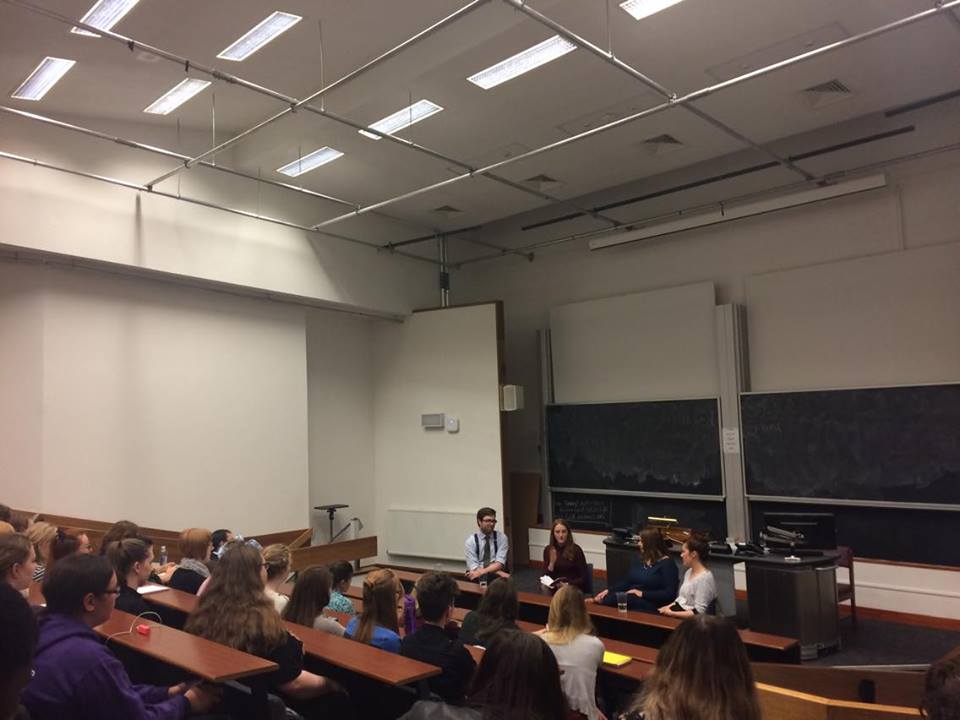 There are not many opportunities to get to know something more about academic publishing outside the course, so I enthusiastically attended the workshop “Academic Publishing – Routes to Success” organised on Monday, 23rd of January. Although the whole event was aimed at postgraduate students interested in pursuing their academic careers, publishing students also found it helpful, as discussions and talks given by speakers explained the processes of communication between researchers and publishers.
There are not many opportunities to get to know something more about academic publishing outside the course, so I enthusiastically attended the workshop “Academic Publishing – Routes to Success” organised on Monday, 23rd of January. Although the whole event was aimed at postgraduate students interested in pursuing their academic careers, publishing students also found it helpful, as discussions and talks given by speakers explained the processes of communication between researchers and publishers.
Academic Book Week is a week-long celebration that focuses on the issues around academic publishing and relationships between academic books’ authors, publishers and readers. Started in 2015 as a centerpiece of the Academic Book of the Future Project, Academic Book Week continues to deliver essential information and tools that can positively aid all parts in the area and creates space for lively debates.
“Academic Publishing – Routes to Success” was the first workshop organised in this year’s edition of the event – it was arranged by researchers on the Peer Review project, Professor Claire Squires, Dr Simon Rowberry, and Dr Dorothy Butchard. The workshop was divided into five sessions, covering different aspects of academic: Monograph Publishing Round Table, with Dr Andrea Schapper, Dr Timothy Peace, and Dr Kelsey Williams (University of Stirling), Peer Review and the Postgraduate Experience, Open Access with Dr Betsy Fuller (University of Stirling), Journal Publishing, with Dr Chris Gair (University of Glasgow), Social Media and Blogging to Develop and Communicate Research, with Nicola Osborne (EDINA, University of Edinburgh). The sessions took nearly seven hours and between them, attendees received a proper lunch and beverages.
The Monograph Publishing Round Table was a panel discussion moderated by Professor Claire Squires – researchers representing different scientific backgrounds, who were already experienced with publishing their monographs, shared their views on the topic and advice for current PhD students. Then, in the second session, Dr Dorothy Butchard introduced the audience to the ideas behind peer reviewing and revealed how the whole process looks like in practice. The session was finished with a discussion about the most current issues in academic publishing, where the audience was first shared into smaller groups and then presented their opinion on the topic. The Open Access workshop delivered by Dr Betsy Fuller clarified the concept of OA, explained differences between its models, presented possible ways of being published and where to find funds for that.
The part of the workshop that I found most useful and informative for publishing students was presented by Dr Chris Gair from the University of Glasgow, editor of Symbiosis: A Journal of Transatlantic Literary and Cultural Relations. His whole presentation shed a light on journal publishing and explained how to maintain a perfect strategy to have your article published.
During the last session, Nicola Osborne, Digital Education & Service Manager from EDINA, demonstrated the way of effective scientific communication on social media platforms, as well as how to use blogs to share and sell researcher’s ideas. From the perspective of a publishing student who wants to work in academic publishing in future, researchers popular on social media and representing a decent and engaging style of writing would make perfect authors to be published and promoted.
All the workshops and discussions clearly proved that to be successful nowadays researchers should be not only skilled in writing and researching the areas of their studies but in maintaining their own brand and effective communication on social media as well. With dynamic changes around academic publishing, they need to take care of their image and its recognition in the community of academics and publishers.
